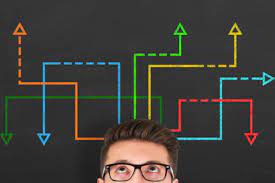De Neys, W. (2022).
Behavioral and Brain Sciences, 1-68.
doi:10.1017/S0140525X2200142X
Abstract
Human reasoning is often conceived as an interplay between a more intuitive and deliberate thought process. In the last 50 years, influential fast-and-slow dual process models that capitalize on this distinction have been used to account for numerous phenomena—from logical reasoning biases, over prosocial behavior, to moral decision-making. The present paper clarifies that despite the popularity, critical assumptions are poorly conceived. My critique focuses on two interconnected foundational issues: the exclusivity and switch feature. The exclusivity feature refers to the tendency to conceive intuition and deliberation as generating unique responses such that one type of response is assumed to be beyond the capability of the fast-intuitive processing mode. I review the empirical evidence in key fields and show that there is no solid ground for such exclusivity. The switch feature concerns the mechanism by which a reasoner can decide to shift between more intuitive and deliberate processing. I present an overview of leading switch accounts and show that they are conceptually problematic—precisely because they presuppose exclusivity. I build on these insights to sketch the groundwork for a more viable dual process architecture and illustrate how it can set a new research agenda to advance the field in the coming years.
Conclusion
In the last 50 years dual process models of thinking have moved to the center stage in research on human reasoning. These models have been instrumental for the initial exploration of human thinking in the cognitive sciences and related fields (Chater, 2018; De Neys, 2021). However, it is time to rethink foundational assumptions. Traditional dual process models have typically conceived intuition and deliberation as generating unique responses such that one type of response is exclusively tied to deliberation and is assumed to be beyond the reach of the intuitive system. I reviewed empirical evidence from key dual process applications that argued against this exclusivity feature. I also showed how exclusivity leads to conceptual complications when trying to explain how a reasoner switches between intuitive and deliberate reasoning. To avoid these complications, I sketched an elementary non-exclusive working model in which it is the activation strength of competing intuitions within System 1 that determines System 2 engagement.
It will be clear that the working model is a starting point that will need to be further developed and specified. However, by avoiding the conceptual paradoxes that plague the traditional model, it presents a more viable basic architecture that can serve as theoretical groundwork to build future dual process models in various fields. In addition, it should at the very least force dual process theorists to specify more explicitly how they address the switch issue. In the absence of such specification, dual process models might continue to provide an appealing narrative but will do little to advance our understanding of the interaction between intuitive and deliberate— fast and slow—thinking. It is in this sense that I hope that the present paper can help to sketch the building blocks of a more judicious dual process future.







